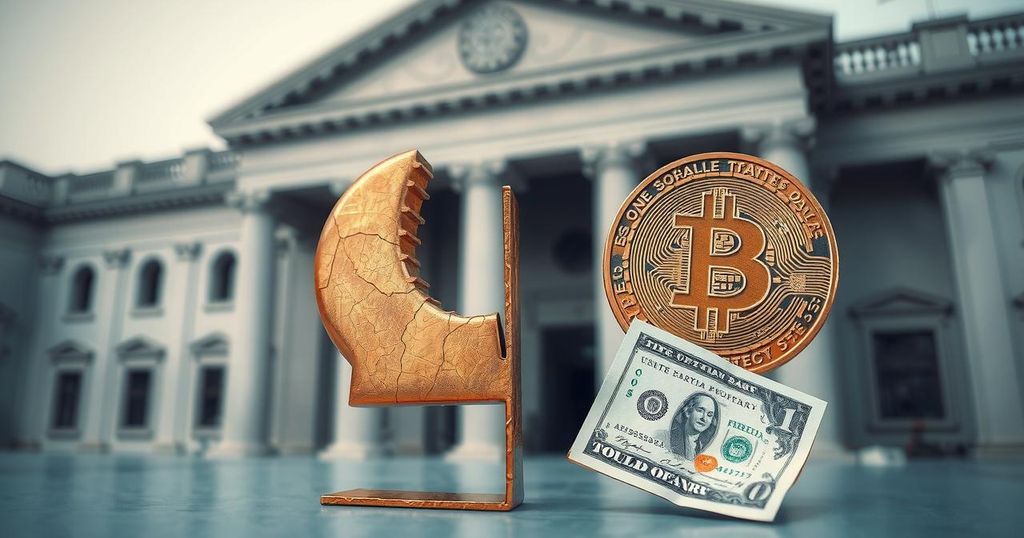El Salvador Retracts Bitcoin Legal Tender Status After Unsuccessful Implementation

El Salvador is abandoning Bitcoin as legal tender due to its limited use and regulatory pressures from the IMF. A recent reform allows optional acceptance of Bitcoin in transactions, indicating a shift in approach. Concerns over complexity and risks remain prevalent among citizens, while the government continues to maintain its Bitcoin reserves.
El Salvador is abandoning its experiment with Bitcoin as legal tender after widespread disuse. The nation, which was the first to adopt Bitcoin in 2021 under President Nayib Bukele, is retracting this decision following legislative reform. The modifications to the Bitcoin Law came at the request of Bukele’s administration, enabling the government to secure a $1.4 billion loan from the International Monetary Fund (IMF).
The recent legislative changes eliminate the compulsory obligation to accept Bitcoin in transactions while still designating it as “legal tender.” This ambivalence allows individuals to refuse Bitcoin for payment under certain conditions. Economic analysts indicate that clarity is needed as the new regulations create confusion about Bitcoin’s actual status in commercial transactions.
The law’s amendment takes effect in 90 days following its publication, yet many Salvadorans have remained indifferent towards the initiative. A 2024 survey by the Central American University indicated that 92% of citizens did not engage with Bitcoin transactions. Various testimonies from individuals highlight the complexity and perceived risks associated with its usage, especially among low-income citizens.
Despite these challenges, El Salvador retains substantial Bitcoin reserves and continues to invest in the cryptocurrency. Government officials assert that the country will maintain its commitment to Bitcoin, with Ambassador Milena Mayorga contending that the legal reforms can be seen as an adaptation to current conditions. The government currently holds 6,050 bitcoins valued at approximately $634.8 million.
In September 2021, El Salvador became the first country to officially adopt Bitcoin as legal tender, a pioneering move by President Nayib Bukele that aimed to integrate cryptocurrency into the national economy. However, the initiative has met with skepticism and limited public acceptance, primarily due to a lack of understanding of the technology and concerns over its volatility. The IMF’s recent conditions have prompted changes to the Bitcoin Law, reflecting larger economic pressures.
In summary, El Salvador’s retreat from Bitcoin as legal tender signifies a recognition of the initiative’s failures amidst public disinterest and regulatory challenges. Despite the government’s ongoing commitment to maintaining Bitcoin reserves, the legal reforms indicate a shift towards a more cautious approach. The future of cryptocurrency in El Salvador remains uncertain as officials attempt to balance economic demands with public sentiment.
Original Source: ticotimes.net








